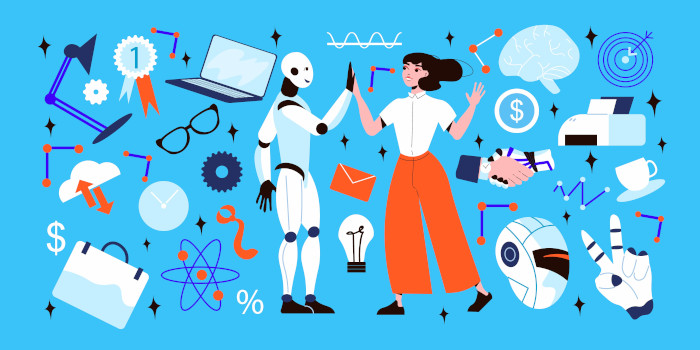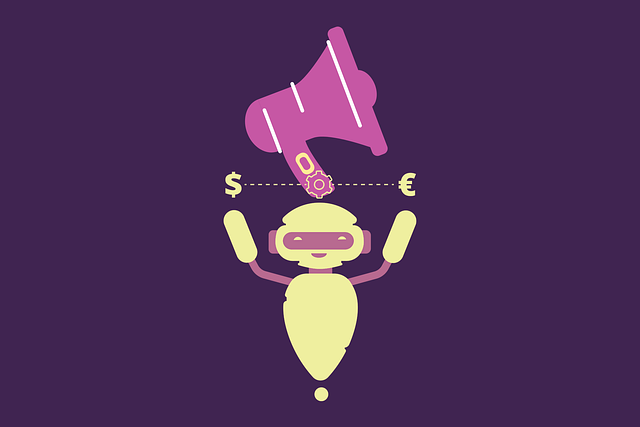AI is fundamentally a technology that can carry out activities that typically require human intelligence outside the imaginative world. These include solving problems, identifying emotions, and even diagnosing illnesses. Every year, there is more buzz around artificial intelligence (AI). As a result, there is significant potential for how goods and services are promoted regarding AI.
A strategy for utilizing technology to enhance the consumer experience is AI marketing. Additionally, it may be applied to increase marketing initiatives’ return on investment (ROI). On a larger scale, it may be utilized to automate procedures that formerly required human intervention. Applications for AI marketing may include content creation, PPC advertisements, and web design. According to a 2021 projection from the International Data Corporation (IDC), businesses will invest close to $342 billion in marketing AI. The buzz about how AI will drastically alter our jobs and personal lives in the future is plenty. Unfortunately, it can be challenging to distinguish reality from fiction and, frequently, marketing hype from helpful information when it comes to AI.

Page Contents
AI-Driven Marketing gets ROI.
Marketers have constantly been challenged to exhibit their understanding of customers by delivering them what they want. Today, though, that expectation is considerably higher. With the advent of AI, businesses now have the power to connect with customers directly and use the data they leave behind to create a roadmap for future customer service. Enterprises are gradually incorporating more artificial intelligence into their marketing tactics as increased processing power, and AI algorithms continue to grow.
Recently, AI technology has been combined with visual technologies such as AR and VR. For example, Coca-Cola opted to merge artificial intelligence (AI) with augmented reality (AR) in factories by superimposing computer visuals over a user’s perspective of the outside world using glasses or a headset. This approach may also give customers engaging opportunities to engage with and learn about a business, fostering a connection.
Artificial intelligence is frequently used to decipher the signals hidden behind mountains of data. It gives businesses a crucial competitive edge by offering astute predictive insights that accurately forecast client behavior. AI deconstructs data silos to produce a more complete picture of the target consumer. As a result, it can dramatically improve campaign outcomes. For example, AI can analyze elements like peak engagement periods, preferred consumer channel use, and previous habits.
AI-Driven Marketing Curates Content
A computer may “learn” to detect patterns in photos, text, audio, and other data using deep learning to extract useful information. AI has the capacity to curate and produce reports, then provide them to the appropriate audiences on the proper channels. When CRM, AI, and big data technologies are coupled, the amount of user data that can be collected from various platforms is increased, accurate target customer insights can be gained, and user demands can be identified, allowing businesses to choose the best possible marketing approach. AI may suggest good writing subjects or even create preliminary drafts of text based on predetermined criteria. Netflix, for instance, can provide suggestions based on the content’s description (content-based filtering) and a user’s prior viewing history concerning how similar they are to other users (collaborative filtering). It enables the business to offer tailored content recommendations to its clients.
AI can assist marketers in developing a comprehensive content strategy on the strategy side. With all this information gathered, marketers can quickly assess the demands of a potential consumer and modify the AI employed to increase sales. Businesses like Amazon and Netflix invest significantly and train machine learning and AI algorithms to provide shockingly accurate and relevant forecasts. Given the number of variables that can be labeled and the range of dimensions that can be classified, they have enough data to bank on.
AI-Driven Marketing Provides Greater Customer Satisfaction
AI customer service is now more straightforward and provides a better experience thanks to advancements in semantic recognition, language processing, and speech converter technologies. AI chatbots have several benefits over traditional customer support representatives. The international oil and gas firm Shell debuted “Shelly,” a new chatbot, last year to assist consumers in determining which improvements are best for their cars. Mansi Madan Tripathy claims that Shelly’s intelligent product assignment lowers downtime and lowers operating expenses for clients by 25% to 30%.
The ability of chatbots to improve the consumer experience is what most people find fascinating. It enables a brand to provide localized customer service since clients may select the language AI customer support uses based on their needs. However, there are acceptable and unsuitable ways to engage chatbots. This technology should never decide on consumer complaints. A lead or client should also find it simple to speak with a human if they want.
AI-Driven Marketing helps in Predictive Analysis for Better Service.
Substantial amounts of data are analyzed using predictive analytics to predict possible outcomes. Companies are increasingly using programmers and data scientists in their marketing divisions. That’s because most marketing initiatives will eventually be built around their expertise. For example, companies like Target have highlighted using predictive analytics to forecast consumer buying trends expertly. This first-party data can be organized and leveraged by AI-powered technology with high processing and orchestration capacities, combining and translating it into a pool of manageable audience intelligence that is simple to activate.
The accuracy of the algorithms employed by marketing firms and the ongoing requirement for human monitoring during the application of these developing technologies. However, when AI or data mining is mentioned, there are many concerns and worries. The sense of security is crucial given that the new data economy is developing due to the targeting vs privacy controversy. There is little question that first-party publisher data and AI-powered predictive marketing will pave the way for a new era of targeting.

Conclusion
AI offers more than just helpful information to guide your digital strategy or enhance user experience. Artificial intelligence (AI) can give organizations deep insights into their consumers through machine learning and significant data analysis. AI is changing digital tactics because it can gather data, evaluate it, apply it, and learn from it. As a result, it will become easier to use to enhance digital marketing tactics and give businesses insightful data about their customers as it develops. More and more companies are adopting AI in digital marketing for their businesses, from “The Matrix” movie to Google AI, from the entertaining and witty Siri to Tesla’s self-driving automobile. Modern Martech tools are not only available to significant corporations thanks to a variety of technological solutions but are also available to businesses of all sizes.